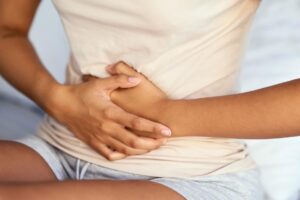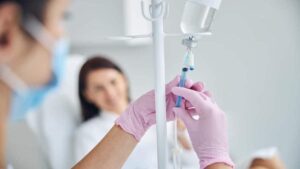How To Cure Piles Without Operation? – Say No To Surgical Equipment’s
Surgery is one of the most straightforward processes to cure piles immediately, but not everyone can afford it. So, How to cure piles without operation?
We always look forward to our reader’s best interests, so we have decided to tell you. How can I cure piles without surgery finally? So, if that sounds interesting to you, then let us begin.
What are piles? — In-depth Look
Hemorrhoids are also known as piles. Hemorrhoids are inflammatory tissue aggregates in the anal canal. They comprise blood vessels, connective tissue, muscle, and elastic fibers.
Many people suffer from piles, but the symptoms are not always visible. Before 50, at least 50% of persons in the United States (U.S.) have visible signs of hemorrhoids.
Symptoms of piles
In most situations, piles symptoms are not significant. They usually resolve themselves within a few days.
A person suffering from piles may encounter the following symptoms:
- Around the anus, a firm, perhaps painful lump may be felt. It might have coagulated blood in it. Blood-filled piles are known as thrombosed external hemorrhoids.
- People with piles may feel that their intestines are still full after passing a stool.
- Following a bowel movement, bright crimson blood is evident.
- Itchy, red, and painful skin surrounds the anus.
- The passage of a stool causes pain.
Piles might deteriorate into a more severe condition. This may include things like:
- Excessive anal bleeding, which may result in anemia infection
- Inability to regulate bowel motions, also known as fecal incontinence
anal fistula, in which a new channel is formed between the skin’s surface near the anus and the interior of the anus; strangulated hemorrhoid, in which the blood supply to the hemorrhoid is cut off, resulting in consequences such as infection or a blood clot;
Causes
Increased pressure in the lower rectum causes piles.
Under pressure, the blood vessels around the anus and the rectum will stretch and swell or bulge, forming piles. This could be because of:
- Constipation that persists
- while lifting heavy weights causes chronic diarrhea
- When passing a stool during pregnancy, you may experience straining.
The propensity to build piles is also hereditary and increases with age.
Diagnosis
After a physical examination, a doctor can typically identify piles. They will inspect the anus of the individual suspected of having piles.

The doctor may pose the following questions:
- Do you have any relatives who have piles?
- Is there any blood or mucous in your stools?
- Is it true that you’ve just lost weight?
- Have your bowel motions lately changed?
- What is the color of the seats?
A digital rectal examination (DRE) or a proctoscope may be used to diagnose internal piles. A proctoscope is a hollow tube with a light within. It permits the doctor to have a close look at the anal canal.
They can extract a tiny tissue sample from the rectum. This may then be forwarded to a lab for examination.
If the person with piles has signs and symptoms of another digestive system condition or any risk factors for colorectal cancer, the doctor may prescribe a colonoscopy.
How can I cure piles without surgery?
The vast majority of piles resolve independently without the need for treatment. On the other hand, some medicines can significantly reduce the discomfort and itching many people experience with piles.
Lifestyle changes: A doctor will propose certain lifestyle adjustments to treat piles.
Diet: Piles may develop as a result of straining during bowel movements. Constipation is the cause of excessive straining. A dietary modification might help maintain the stools regular and soft.
One way to accomplish this is to consume extra fiber, such as fruits and vegetables, or predominantly eat bran-based morning cereals.
A doctor may also urge people suffering from piles to drink more water. Caffeine should be avoided at all costs.
Body mass index (BMI): Losing weight may help minimize the occurrence and severity of piles.
Doctors also recommend exercising and avoiding straining to evacuate feces to prevent piles. Exercising is one of the most common treatments for piles.
Medications: Various medications are available to help piles patients control their symptoms.
OTC medications: These are available over-the-counter (OTC) or online. Pain relievers, ointments, lotions, and pads are among the medicines that may help reduce redness and swelling around the anus.

OTC medicines do not cure piles, although they may alleviate symptoms. They should not be used for more than seven days since they might cause additional irritation and skin thinning. Unless otherwise directed by a medical practitioner, do not take two or more drugs simultaneously.
